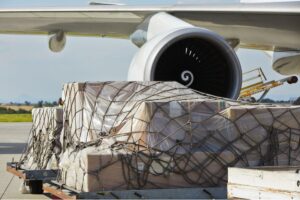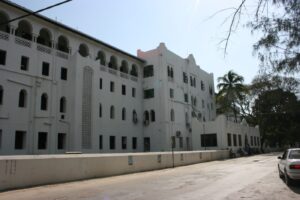Dar es Salaam. Tanzania is setting eyes on its first-ever iconic vehicle number plate auction, an innovative move aimed at boosting government revenue while providing individuals and institutions with a novel investment opportunity.
Spearheaded by local auctioneer David Mponda in collaboration with the Tanzania Revenue Authority (TRA), the initiative signals a new chapter in the country’s approach to fundraising for national development.
Mr Mponda, the brain behind the project, said the auction model is not only geared towards revenue generation but also provides a platform for individuals to acquire rare and most iconic vehicle number plates.
“The idea was born out of a desire to leverage market demand and personal preference. These plates, due to their uniqueness, become both a status symbol and a financial asset,” he explained.
The forthcoming Royal Number Plates Auction marks a historic milestone—not only for Tanzania but for the entire East African region.
The auctions seek to emulate the success of global markets such as the United Arab Emirates and the United Kingdom, where number plate auctions attract significant bids from collectors and high-net-worth individuals.
In the UAE, for example, noble number plates are sold for millions, often in support of charitable initiatives such as the “One Billion Meals” campaign.
In the UK, the DVLA regularly organises number plate auctions that have become a niche market for investors and collectors alike.
In Tanzania, the goal is twofold: to tap into this emerging global trend and to direct the proceeds towards socio-economic development.

David Mponda, the brain behind the iconic vehicle number plate auctions
“This auction will support national development without burdening the taxpayer,” said Mr Mponda.
He emphasised that the revenue generated would fund key public sector initiatives, including environmental conservation, insurance coverage for underserved populations, and community upliftment projects.
Among the anticipated beneficiaries are small-scale miners and Kilimanjaro mountain porters, whose work exposes them to significant occupational hazards.
Proceeds from the auction will subsidise insurance schemes tailored to these high-risk groups, offering protection in areas often overlooked by traditional financial institutions.
Environmental restoration projects in mining regions are also expected to receive funding, with initiatives ranging from reforestation to ecosystem rehabilitation.
The auction model, according to its pioneer, also promotes national identity and prestige.
“An iconic number plate is more than just a registration. It’s a reflection of patriotism, personal achievement, and a contribution to national development,” he noted.
As the auction grows, it is expected to attract private sector players keen to associate their brands with innovation and corporate social responsibility.
Participation in the auction will be facilitated through the Onnilipe App, ensuring a transparent and accessible bidding process.
The digital platform is designed to streamline registration and bidding, with each step calibrated to maintain fairness and integrity.
Beyond vehicle plates, the architect of the initiative envisions broader applications of the auction system across various industries.
In the sports sector, for example, exclusive memorabilia, football betting rights auctions, VIP event tickets, and team shares could be auctioned to generate revenue and deepen fan engagement.
The insurance sector could auction bespoke coverage packages and reinsurance contracts and also for contemporary arts auctions.
“These models introduce competitive transparency, create investment opportunities, and allow for better allocation of public and private resources,” he explained. Notably, auctions provide a non-inflationary form of fundraising, where revenue is generated without introducing new taxes or increasing existing rates.
This innovation, the auctioneer added, aligns with Tanzania’s broader economic aspirations—promoting sustainability, social inclusion, and financial innovation.
“We are not merely auctioning plates; we are pioneering a shift in how we think about value, community development, and national progress,” he said.
The upcoming event is expected to garner interest from individuals, corporates, and institutions looking to own a piece of history—while also contributing to the future of Tanzania.














